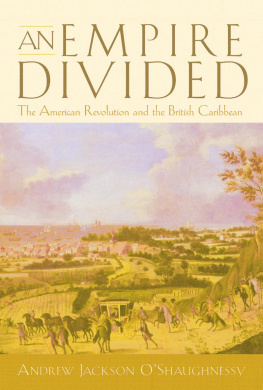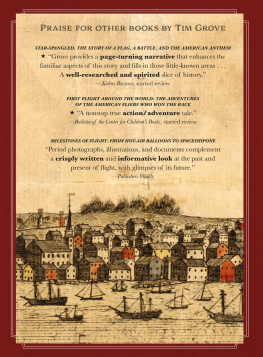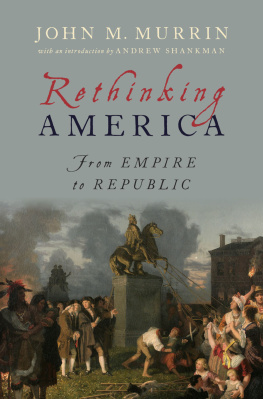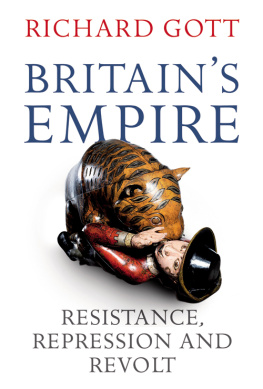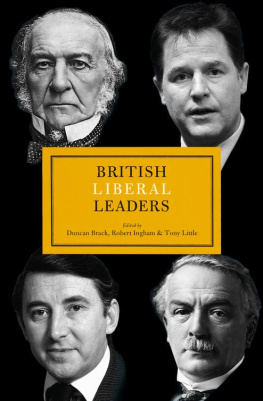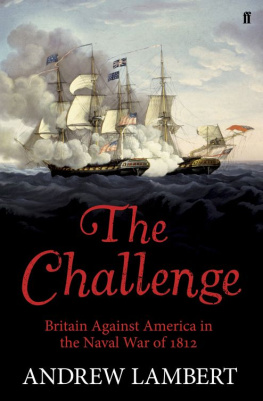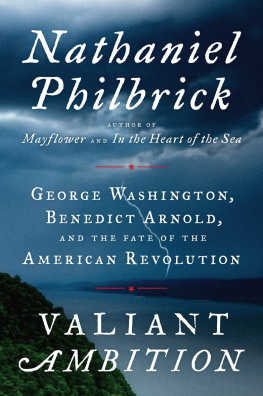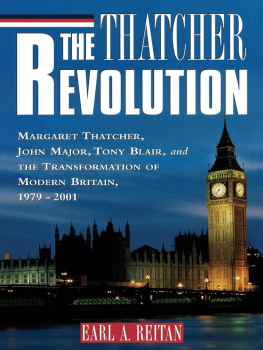The Men Who Lost America
THE LEWIS WALPOLE SERIES IN EIGHTEENTH-CENTURY CULTURE AND HISTORY
The Lewis Walpole Series, published by Yale University Press with the aid of the Annie Burr Lewis Fund, is dedicated to the culture and history of the long eighteenth century (from the Glorious Revolution to the accession of Queen Victoria). It welcomes work in a variety of fields, including literature and history, the visual arts, political philosophy, music, legal history, and the history of science. In addition to original scholarly work, the series publishes new editions and translations of writing from the period, as well as reprints of major books that are currently unavailable. Though the majority of books in the series will probably concentrate on Great Britain and the Continent, the range of our geographical interests is as wide as Horace Walpoles.
Published with assistance from the Annie Burr Lewis Fund.
Copyright 2013 by Andrew Jackson OShaughnessy.
All rights reserved.
This book may not be reproduced, in whole or in part, including illustrations, in any form (beyond that copying permitted by Sections 107 and 108 of the U.S. Copyright Law and except by reviewers for the public press), without written permission from the publishers.
Yale University Press books may be purchased in quantity for educational, business, or promotional use. For information, please e-mail sales.press@yale.edu (U.S. office) or sales@yaleup.co.uk (U.K. office).
Designed by James J. Johnson.
Set in Garamond types by Keystone Typesetting, Inc.
Printed in the United States of America.
Library of Congress Cataloging-in-Publication Data
OShaughnessy, Andrew Jackson.
The men who lost America : British leadership, the American Revolution, and the fate of the empire /
Andrew Jackson OShaughnessy.
pages cm(The Lewis Walpole series in eighteenth-century culture and history)
Includes bibliographical references and index.
ISBN 978-0-300-19107-3 (hardback : alk. paper)
1. United StatesHistoryRevolution, 17751783British forces. 2. United StatesHistoryRevolution, 17751783Campaigns. 3. Great BritainArmyHistoryRevolution, 17751783. 4. Great BritainPolitics and government1760-1820. 5. Napoleonic Wars, 18001815Participation, British. I. Title.
E267.O75 2013 973.32dc23
2012047724
This paper meets the requirements of ANSI/NISO Z39.481992 (Permanence of Paper).
10 9 8 7 6 5 4 3 2 1
To my parents, John and Marjorie, and my brother Nicholas
Your failure is, I am persuaded, as certain as fate. America is above your reach... her independence neither rests upon your consent, nor can it be prevented by your arms. In short, you spend your substance in vain, and impoverish yourself without hope.
Thomas Paine, To the People of England, 1774
Acknowledgments
Since the time that we were fellow students at Oxford, Charles Stopford Sackville has been a good and generous friend who inadvertently suggested a title for this book when he mentioned that he was descended from the man who lost America, Lord George Germain. It is hoped that he will not be disappointed that this book grants Germain a lesser role in explaining the British loss of America. Another friend of my undergraduate years, Caroline Neville, is also descended from one of the biographical subjects of this book, Lord Charles Cornwallis. Her father, Robin Neville, Lord Braybrooke, introduced me to artifacts and materials relating to Cornwallis at Audley End. She and her husband, Edward Stanley, the present earl of Derby, have subsequently made me aware of additional papers of General John Burgoyne, who married the daughter of the eleventh earl of Derby.
These personal connections influenced my decision to adopt a biographical approach, although the argument of this book is a product of my earlier study of the British Caribbean during the Revolutionary War: An Empire Divided: The American Revolution and the British Caribbean (Philadelphia: University of Pennsylvania Press, 2000). The writing of the book made me acutely aware of the global dimensions of British military commitments during the American Revolution. Although Piers Mackesy had previously explored this dimension in The War for America, 17751783 (Cambridge, Mass.: Harvard University Press, 1964), he nevertheless concluded that defeat was due to poor leadership, while shifting the onus of responsibility from the politicians to the generals. Unlike many other historians, he was careful to show the underlying rationale for the behavior of the commanders, but he believed that the war was winnable and he implied that the outcome might have been different if Britain had appointed Sir Guy Carleton earlier to be commander in chief in America. His interpretation was contested by John Shy, who was influenced by the American experience in Vietnam. Nevertheless, the old shibboleths of blaming the leadership continue to hold sway. The case against this claim deserves further elaboration, and can be more effectively argued by viewing the war through the lens of the British.
I began work for this book in September 2001, thanks to a full year sabbatical leave from the University of Wisconsin Oshkosh and a Barra Senior Research Fellowship at The McNeil Center for Early American Studies at the University of Pennsylvania. I am grateful to the University of Wisconsin Oshkosh Faculty Development Board, which funded my sabbatical and which was a model of professional development support throughout the University of Wisconsin system. Franca Barricelli generously chaired the department in my absence and was in every way a wonderful colleague, together with her husband Lane Earns. The McNeil Center for Early American Studies provided a vibrant intellectual home that was due in large part to the vision of its founder, Richard Dunn, and to the vitality of the present director, Dan Richter. The weekly seminars were conducted in a challenging but supportive and constructive atmosphere. My tenure as a fellow of the McNeil Center also taught me why the British so appreciated Philadelphia.
I am grateful to those who sent me unpublished papers and references, including Charles Baxley, Richard Bernstein, Douglas Bradburn, Amy Turner Bushnell, Theodore Crackel, Douglas R. Cubbison, Harry Dickinson, James Donald, Christian DuComb, William M. Ferraro, Julie Flavell, Edith Gelles, Jack Greene, Benjamin Lee Huggins, J. Jefferson Looney, James Kirby Martin, John Minniear, Cassandra Pybus, John Roche, Robert Selig, Taylor Stoermer, Gregory J. W. Urwin, Bruce M. Venter, Mathew C. Ward, Bill Welsch, Henry Wiencek Jr., Gaye Wilson, and Neil L. York. Nicholas Cole kindly translated and identified the Latin quotes in the description of the Mischianza. It is similarly a pleasure to acknowledge those who read specific chapters or portions of the manuscript, including Bruce Bailey, Jeremy Black, Jim David, Grant Gilmore, Paul Langford, Peter J. Marshall, Pauline Maier, Holly A. Mayer, John Roche, and Leonard Sadosky. My special thanks are due to those who read and commented upon the entire manuscript: Stephen Conway, Frank Cogliano, Harry Dickinson, Julie Flavell, Ira Gruber, Michael Kranish, Maya Jasanoff, Peter Onuf, Gary Sandling, Keith Thomson, and Mark Urban. Steven Strumlauf and his wife Sonia Fox held a session of their book club to review the manuscript and gave a delightful dinner party afterwards at their home in Charlottesville. My friend Jeanie Grant Moore edited a late draft of the book that brought back happy memories of our teaching a full semester study abroad program, for two successive years, at Hughes Hall College, Cambridge University.


